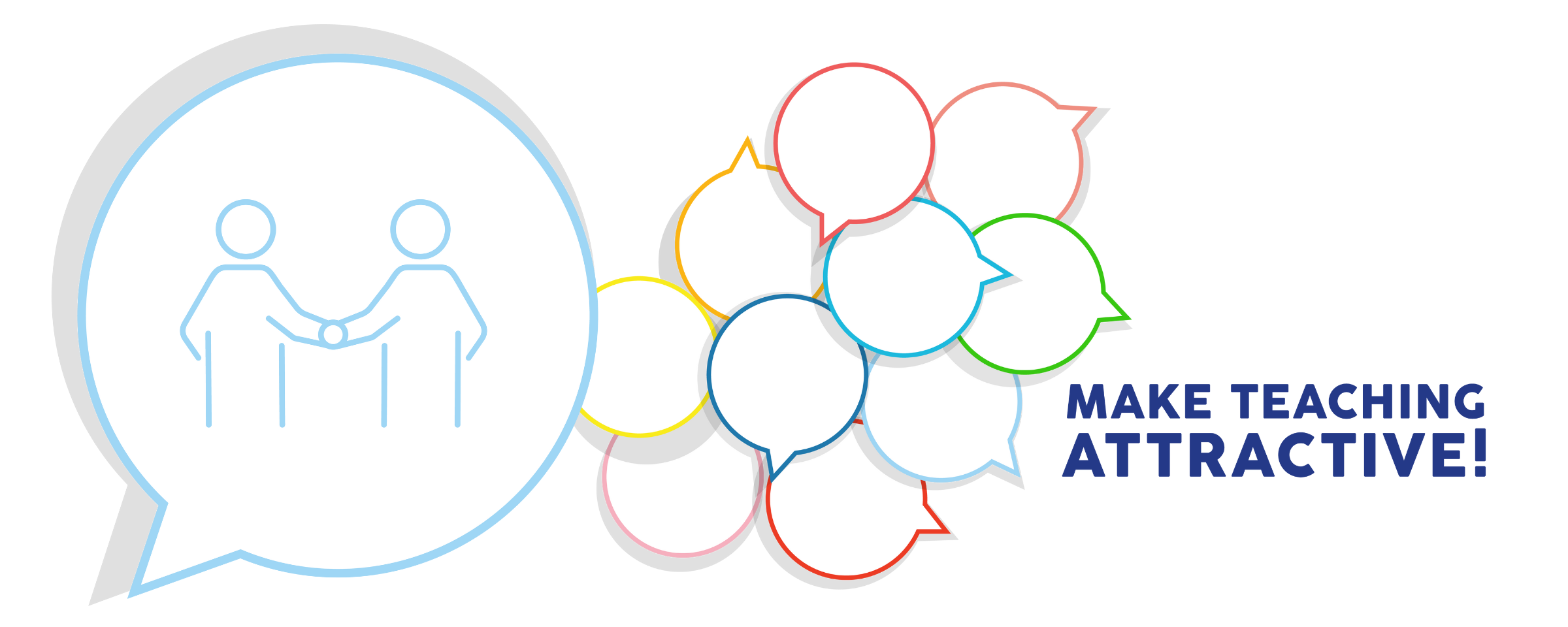
Create democratic school cultures: Democratic citizenship education
The current turbulent times of military conflicts, socio-economic, energetic, and humanitarian crises, accompanied by the spread of populism, extreme-right and conservative political discourses as well as of neo-liberal policies, fuelling radicalisation, xenophobia, stereotypes and extremist attacks, make democratic citizenship education ever more important. As noted in ETUCE Resolution on ‘Campaigning to enhance the Teaching Profession for Solidarity, Democracy, Equality and Sustainability’ “in times of societal change […] human rights and democratic citizenship education as well as sustainable development are fundamental in educating committed, critical-thinking and active citizens and providing a sense of belonging and opportunities for active participation for all learners, especially for those disadvantaged and marginalised”.
ETUCE believes that education plays a crucial role in preparing open-minded, critical-thinking, reflective and active citizens who care about their society, the world and environment they live in, and future generations. So what are the key elements of such education?
- Whole-school approach is crucial!
Education institutions need to be supported to become democratic institutions where teachers, students and other members of the school community play an active role in decision-making within their own education institution as recommended by the ETUCE, EFEE and ESHA Joint Statement on Citizenship Education & EU Common Values. To create a positive and democratic school culture, it is essential to embrace collaborative and collegial leadership in education institutions and systems, setting shared goals and working towards their fulfilment.
- Teachers need training!
Preparing active and responsible citizens through education requires well-trained and sufficiently supported teachers, academics, and other education personnel. However, ETUCE own research (EU CONVINCE project research report) shows that education staff feel unprepared to deliver democratic citizenship education as teaching critical thinking, dealing with controversial and sensitive issues, creating a positive and safe learning environment, and raising awareness about diversity (including diversity of opinions) are not sufficiently addressed in their initial and continuous professional development.
- Teachers need materials!
Despite the wide availability of materials regarding citizenship education developed by various international organisations (e.g. Council of Europe), there is a significant lack of research-based clear guidelines, comprehensive curricula, pedagogical approaches, methods and practices, and assessment frameworks for promoting, teaching, and practicing democratic citizenship and a responsible use of new technologies for all teachers, academics, and other education personnel, especially at national, regional and local level. To support its member organisations on this topic, ETUCE has developed a MOOC ‘Citizenship and Human Rights Education for Change’ available for everyone in EN and FR.
- Allowing the time and space to open the doors of the classroom!
‘Opening the doors of the classroom’ to peer observation and professional discussions, as well as to members of the local community, diverse views and experiences, etc. are one of the greatest tools of democratic citizenship education. Nonetheless, any extra-curricular activities and ‘openings of the classroom’ are difficult to implement in times of teacher shortages and budget cuts in education.
- Digital citizenship education needs to be promoted more!
Both critical thinking and media literacy together with e-safety are parts of a more complex concept of “digital citizenship”, which encompasses a range of competences that harness the benefits and opportunities of the online world while building resilience to potential harms. Implementation of “digital citizenship” and ensuring that all teachers and learners benefit from digital and ICT development for their teaching and learning requires specific training for education workers, both initial and continuous, and the provision of the necessary public investment for secure, quality, digital infrastructure in education institutions, to bridge the existing the large disparities in degree and relevance in digital access, media literacy, and social contexts across European countries.
ETUCE and its member organisations continue their active work on ensuring that democratic citizenship education in every European country is built on a clear vision of the whole education institution community, based on democratic culture and democratic governance, safe and open learning and teaching environment, dialogue and constructive discussions, respect for the freedoms of opinion and expression, and on participatory approaches among all education actors, including teachers, academics, other education personnel, school leaders, parents, student associations, and other. Young citizens should have opportunities to start practising their acquired social, civic, and intercultural competences in the education institutions and their local communities, to become active and responsible citizens of a future Europe.
To learn more about ETUCE work on democratic citizenship education, please visit the EU CONVINCE project website.